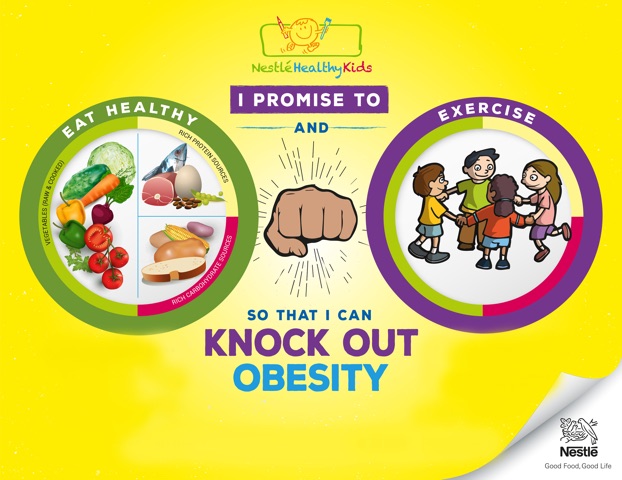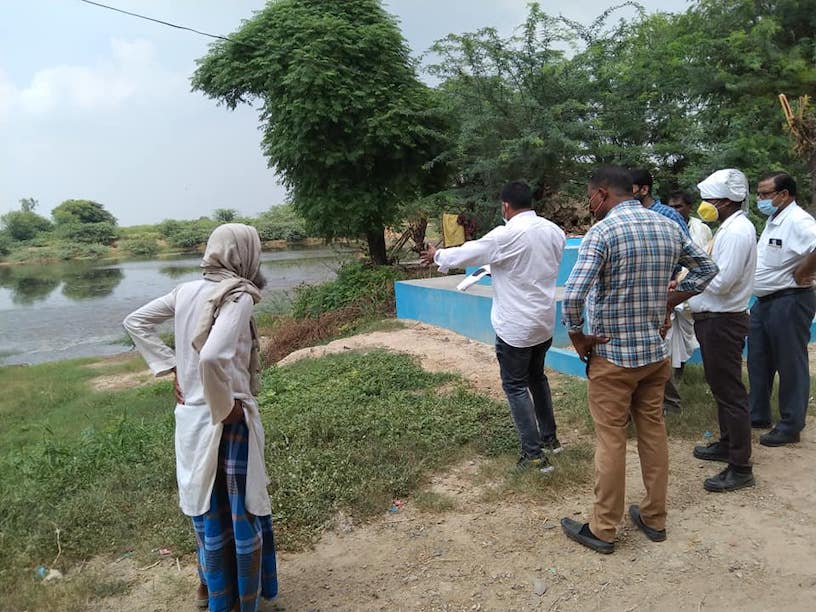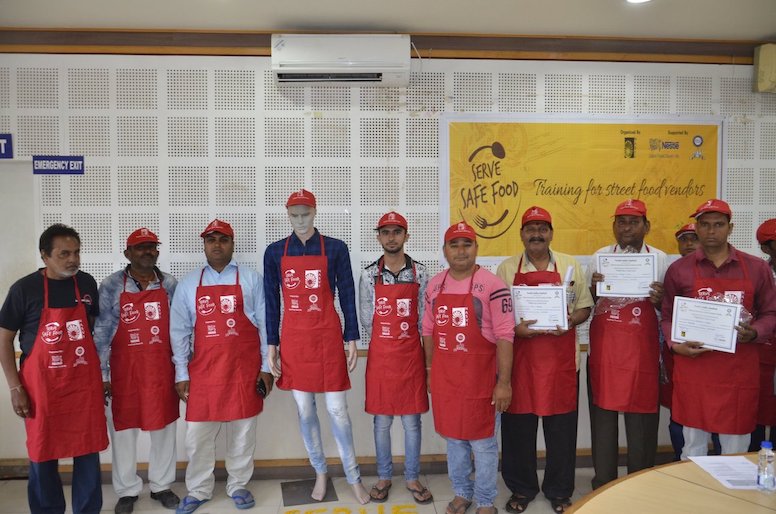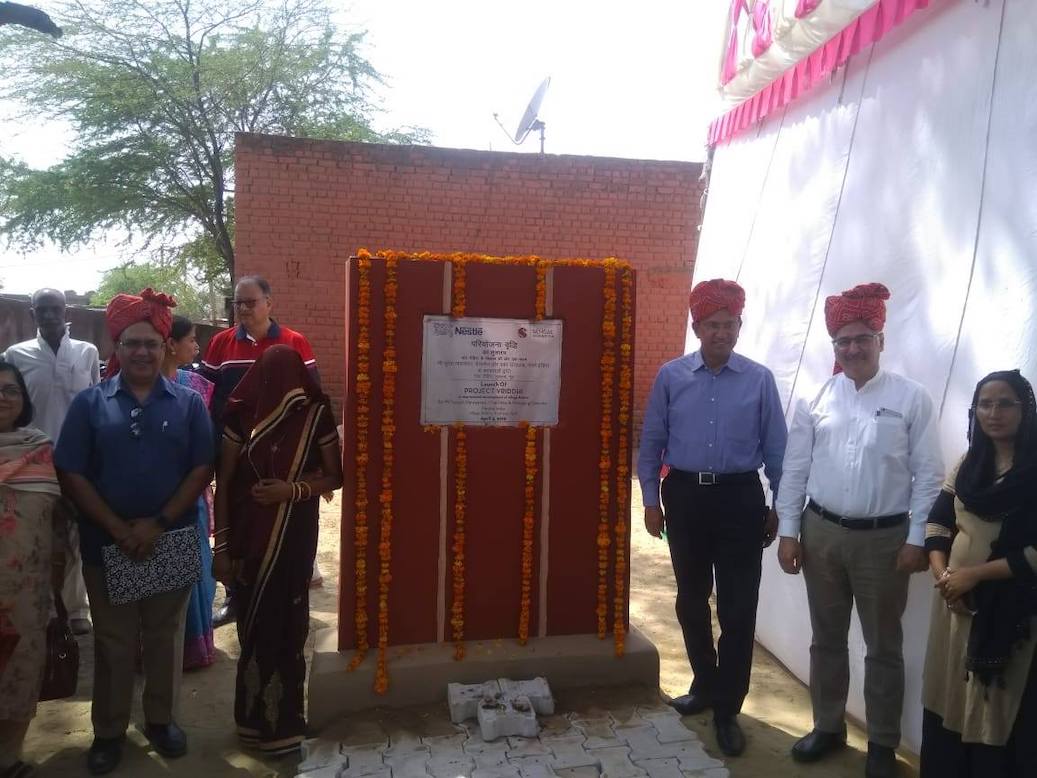CSR drive of baby care brand Chicco India for kids with cancer
Every battle isn’t fought on a battleground; some are done quietly and with perseverance. Cancer patients are fighting their battle silently and to support this endeavour, Chicco India joined hands with Chennai-based NGO Sankalp Beautiful World for a CSR drive. They will be providing free of cost kits to paediatric cancer patients and cancer survivors.
Chicco, the brand which takes care of multiple needs of babies with its innovative products, is overwhelmed to conduct this CSR initiative and contribute free toys and wearables to the Paediatric Cancer patients. Kits are being delivered to their residence by Sankalp staff.
Rajesh Vohra, CEO, Chicco India, said “Kids with cancer are already dealing with a lot in their life and giving them a relief and sense of normalcy, even for a moment is very important. It’s just a small gesture from Chicco to support the kids who are hero in their own way.”
Sankalp Beautiful World is a nonprofit organization established in December 2015. They are dedicatedly working for cancer patients. The NGO grows today as an organization that seeks to provide hope and solutions to those suffering from cancer.
Disclaimer: This media release is auto-generated. The CSR Journal is not responsible for the content
World Mental Health Day 2020: Greater Investment, Greater Access
What do you do when you have a toothache? Visit a dentist would be the best guess. What about persistent acne? A skin specialist or a dermatologist would fix that. Seeking out professional help when you’re concerned about your mental wellbeing is as simple as that. Demonising the mentally ill is no solution. We are looking at the problem from the wrong lens. Everyone is entitled to psycho-social wellness. The annual World Mental Health Day observance on October 10 is testimony to this fact.
What is World Mental Health Day for?
Richard Hunter is the man who started the annual activity. He was then Deputy Secretary General of the World Federation for Mental Health (WFMH). He wanted to advocate and educate the masses about how relevant psychological wellbeing is for everyone. The first-ever World Mental Health Day fell on 10th October 1992.
This Day started small. For the first three years, it was restricted to a two-hour television broadcast from the US that had live phone-in questions from viewers as far as Australia and Zambia. Remember, this was before the whole social media schkabang. The popularity and reach of this event were evident from the start. WFMH had a chapter in far-off Swaziland. There were questions from viewers in Peru.
Growing significance
Eugene Brody, Secretary General, WFMH suggested having a theme for the Day, starting 1994. The first theme was a universal one: Improving the Quality of Mental Health Services throughout the World. The campaign took off in 27 countries, with Australia and the UK running their own targetted national campaign. This was when the Day took on a life of its own.
Government ministries, civil organizations and responsible citizens began coming together for specialised programmes. For example, a month-long event in Egypt, a conference at the Ministry of Health in France and an event at an old London hospital where children and youth with learning difficulties planted seedlings.
What is the theme for World Mental Health Day 2020?
The theme for 2020 is ‘Mental Health For All: Greater Investment – Greater Access’. This theme bears tremendous relevance in the COVID-19 scenario.
It would be a cliche to repeat that this is a time of uncertainty and fear. Nevertheless, added to the fear of getting infected with coronavirus are the life-altering changes every person in the world is going through in the global pandemic. We have had to change the way we live, the way we work and study, the way we interact with the people in our lives.
Working from home for months together, getting the children used to distance learning, facing the prospect of unemployment, the loss of people-facing contact with our friends and colleagues has put a strain on the psyche as well.
Investment in mental healthcare and access to it was already rather sparse in India. People who are already suffering from anxiety, depression, suicidal tendencies and bipolar disorder aren’t able to consult their analysts in person. Psychiatrists and psychotherapists have witnessed a steep rise in suicidal thoughts among youth people during the lockdown, according to a recent survey in India. So, “greater investment and greater access” in these fields is a no-brainer.

HRH Princess Iman Afzan Al-Sultan Abdullah of Malaysia, Patron of World Mental Health Day said:
“While COVID-19 has increased the spotlight on mental health, the stocktaking of how greater access to mental healthcare can be improved must always be a continuous process. We can always do more to strengthen mental health response and support in our communities. These investments are not purely the government’s responsibility, nor should doctors be the only answer for those suffering. These investments are the responsibility of all. More importantly, they indicate that we ourselves are an untapped resource in mental healthcare.”
This article is the first in our series on #MentalHealth
The Complete Report on CSR Activities of Nestle
Nestlé India Limited, a leading Nutrition, Health and Wellness Company has been in India for about 100 years. The company, since its inception, has projected a responsible behaviour by ensuring the welfare and upliftment of communities around which it operates. The company believes that creating better livelihood opportunities for the communities residing around its operations, is its responsibility.
Through its Corporate Social responsibility (CSR) initiatives, Nestle focuses on areas in which it can create maximum value. These areas include:
– Nutrition: India bears the double burden of malnutrition for a large part of her population. Nestle’s CSR initiatives aim at improving nutrition awareness of communities with a special focus on school children.
– Water and Sanitation: India is among the world’s most water-stressed countries. Many citizens of India do not have access to safe drinking water. The CSR initiatives of Nestle India aims to help farmers with techniques to reduce water usage in agriculture, raise awareness on water conservation and provide access to safe drinking water and sanitation.
– Rural Development: Nestle CSR has chosen to focus on rural development in order to support the sustainable development of farmers, which would allow them to grow as the company grows.
The below video highlights the various CSR activities of Nestle:
1. CSR at Nestle
Nestle firmly believes in the purpose of ‘Enhancing quality of life and contributing to a healthier future’. The company operates around this mantra and is mindful of the needs of the communities around it. It not only strives to be sustainable with the community but also works to make a positive difference and create maximum value for the society.
Nestle India focuses its efforts in society on the three pivotal ambitions of enabling healthier and happier lives for individuals and families, on helping develop thriving and resilient communities, and on stewarding the planet’s natural resources for future generations, with particular care for water.
Nestle believes in creating partnerships with stakeholders including communities, academia, civil society, expert organisations and so on. It chooses to take up such CSR activities that have been aligned with national priorities such as public health, education, livelihood, water and sanitation etc. These areas are mapped with the activities as prescribed in Schedule VII to the Companies Act, 2013.
Nestle India Limited spent more than the prescribed 2% in corporate social responsibility programs in the financial year 2018-19. While the prescribed CSR expenditure as per Section 135 of the Companies Act, 2013 was 38.07 crore rupees, actual CSR spend during the year amounted to INR 38.31 crores.
2. CSR Policy
The Company follows a structured governance procedure to monitor CSR activities. The CSR Policy is governed by the Board of Directors. In terms of the Companies Act, 2013 the Board of Directors have constituted the Corporate Governance and Social Responsibility Committee (‘CSR Committee’) to formulate and recommend to the Board of Directors the CSR Policy indicating activities to be undertaken as specified in Schedule VII and the amount of expenditure for the CSR activities.
The CSR Committee monitors the CSR Policy of the Company from time to time. The CSR Department monitors the status of each project and reports its findings to the CSR Committee periodically. In addition, Independent Director(s) may visit one or more projects, from time to time and report their findings to the CSR Committee.
2.1 CSR Committee
The Nestle India’s Corporate Social Responsibility Committee comprises of:
1. Dr. (Mrs.) Swati A. Piramal (Chairman of L&T CSR Committee)
2. Ms. Rama Bijapurkar
3. Mr. Suresh Narayanan
3. Nestle Healthy Kids Programme – CSR in Nutrition – Project Jagriti
India is home to 40 million stunted children and Nestle believes that no child should suffer health concerns because of the lack of resources and access to nutritional food. Malnutrition impacts not only the present of the country but also the future as these stunted children will become leaders of tomorrow. As Nestle is one of the foremost nutrition companies in the world, it chose to create a healthier India through education, information and intervention.

3.1. Project Jagriti – A unique partnership to create healthier communities
Nestle CSR partnered with MAMTA Health Institute for Mother and Child to realise their shared vision of creating healthier communities. The project has a specific focus on 4 groups consisting of adolescents, pregnant women, lactating mothers and married couples. Creating an enabling environment for the women, it targets the sensitization to institutional deliveries, post-natal visits to the hospital, awareness on family planning. As malnutrition affects an individual over his/her entire life, the project makes considerations and strategies which minimise this effect and bring about a holistic development of the individual.
It focuses on creating awareness about early initiation of breastfeeding, exclusive breastfeeding and improving breastfeeding practices in the community. Adolescents are included by conducting sessions which covers topics of hygiene, health, menstrual hygiene, and other important topics related to health. Young couples are provided access to family planning services, made aware of gender equity norms, and are counselled and educated on preconception care, marital communication, issues of preventive mental, sexual and reproductive health.
This CSR initiative by Nestle has a dedicated team of outreach workers who conduct door to door awareness visits to counsel those who are in need of it. The outreach workers primarily act as facilitators for the groups, guiding from the backdrop to encourage peer to peer learning.
Initially, the programme embedded the peer mentorship approach as it enabled a smoother transfer of knowledge with group members being educated by a person who is from the same community and aware of a similar situation. In 2019, the programme moved to system-led approach with a focus on counselling and development of front- line workers such as Accredited Social Health Activists (ASHA) and Anganwadi Workers etc. This approach is useful in populations that are deficient in knowledge and unaware of their health needs and rights.
The programme started with a pilot in Delhi in year 2014, reaching out to over 100,000 people in marginalized communities. In 2019, the Company scaled up the programme in high priority districts across Delhi (West Delhi); Uttar Pradesh (Banda, Lucknow, Prayagraj, Varanasi, Kaushambi); Maharashtra (Nagpur); Rajasthan (Churu, Sri Ganganagar); and Odisha (Bolangir, Naupada).
Till 2019, the programme has impacted over 5 million lives across 8 states and Union Territories in India.
3.2 Nestle Healthy Kids Programme – 10 years of promoting adolescent’s nutrition, health and wellbeing
20% of India’s population constitutes adolescents (10 to 19 years), which makes adolescent health particularly important to meet the Sustainable Development Goals (SDGs) – a set of universal goals to end poverty, hunger and achieve equality.
The Nestlé Healthy Kids Programme was a breakthrough initiative which was launched in 2009 to show the company’s commitment to promoting nutrition, health and wellbeing among adolescents.
Nestle has extensively worked in the nutrition domain all over the world and it uses this knowledge and core competency in its CSR activities as well. Creating and selling products in the health and nutrition space has armed the company with the right knowledge on how to tackle the evil of malnutrition. The key to Nestle Healthy Kids Programme is the understanding of a balanced diet, healthy eating habits, awareness of food and personal hygiene and regular exercises in form of some physical activity like sports and games.
This CSR program was started by Nestle in 2009 and it is celebrating its 10th year of implementation. Over the last 10 years, the programme has done some phenomenal work and has expanded to include other facets of tackling the problem of malnutrition. It also includes parents and teachers as direct beneficiaries in the programme as they are important stakeholders if we are to defeat malnutrition.
Nestle CSR collaborates with other partners with a common cause who have the expertise in the local conditions to create real impact and bring about a real change in the life of the community where the company operates. The company is implementing this programming in two modes:
1. Conduct Classroom sessions in partnership with Six Regional Universities
2. Partnering with Magic Bus India foundation that has pioneered the ‘Sports for Development’ model
a) The classroom sessions are conducted in partnership with Universities through the Department of Home Science and Food Science, wherein information on the nutrition status of the local food habits is collected through their extension activities and the programme content is developed jointly with Nestlé India team. Each student receives nutrition training – encouraging them to eat more vegetables and fruits, ensuring their meals are as nutritious and diversified as possible. Pre and post programme behavioural and knowledge tests are conducted to measure the effectiveness of learning and implementation.
b) Embracing non-traditional learning method of ‘sports for development’, implementing partner Magic Bus India Foundation, engages with the adolescents in interactive sessions in which they receive nutrition knowledge and are encouraged to play regularly. By their very nature, sports is about participation, inclusion and a sense of belonging, and as a result of the Magic Bus sessions, the entire community comes together to promote a healthier lifestyle.
Till 2019, over 3 lakh adolescents across 23 states have been encouraged to live healthier lives through Nestlé Healthy Kids Programme.
4. Water Conservation
70% of India’s population depends on agriculture and hence puts tremendous pressure on the water resources of the country. In spite of being blessed with perennial rivers, major regions in India are facing water scarcity. India’s water withdrawals are one of the highest in the world and it needs to start focussing on water productivity which will lead to higher agricultural production with depleting water resources. ‘Water Productivity Mapping of Major Indian Crops’ a study conducted by NABARD and ICRIER indicates that rice and sugarcane are examples of unsustainable use of water resources. So Nestle CSR has started a pilot project targeting these two crops.

Nestle launched a water stewardship CSR initiative with AgSri at the Kabini river Basin in Karnataka to develop sustainable agricultural practices for rice and sugarcane. As agriculture is the largest user of water from the catchment, engaging farmers on ecologically sustainable practices of System of Rice Intensification (SRI) and the Sustainable Sugarcane Initiative (SSI) are helping to reduce the agricultural water withdrawal and improving agricultural productivity. These interventions make it possible to have more yield and good income by using less seeds, less water and fewer fertilizers besides reducing the number of labourers and expenditure.
Till the year 2019, over 300 progressive farmers have adopted the SSI and SRI methods in their farm fields, covering total area of 180 hectares for both sugarcane and paddy.
5. Nestle CSR – Project Serve Safe Food
In India, street food is a delicacy and provides employment and livelihood to a large portion of its population. Street food vending makes a major contribution to the local economy but lack of training in food safety and good hygiene practices is widespread among these street food vendors. This puts street foods at risk of contamination at all stages of handling.
Street food vendors lack access to resources and knowledge about standard hygiene practices. COVID-19 pandemic has created another roadblock in the lives of the street food vendors. Street foods are almost always stored at wrong temperatures and sold from vending sites including kiosks, make-shift accommodation, and pushcarts as well as other temporary structures. The Government of India is undertaking several initiatives to improve the existing scenario. The Food Safety and Standards Authority of India (FSSAI) is implementing programmes that involve training and capacity building of the street food vendors.
Nestle believes there is a huge scope to better the livelihoods of street food vendors and also make the street food safer and more hygienic. In 2016, the Company launched Project ‘Serve Safe Food’ to provide training to the street food vendors to enable them to voluntarily adopt the hygienic practices that improve food quality. The programme involves collaborative approach, The Company partner with local authorities and the training is conducted by National Association of Street Vendors of India (NASVI) which includes topics such as good food handling practices, waste disposal, health, personal and cart hygiene. With these training, the street food vendors learn about simple aspects of food hygiene such as hand washing practices and usage of disposable gloves etc. The street foods vendors under good sanitary conditions prevents the spread of foodborne diseases. It also contributes to increasing in sales, as a clean food stand or premise attracts more consumers based on aesthetic appeal.

Till 2019, the programme has been implemented across 17 states/UTs including Telangana, Karnataka, Meghalaya, Puducherry and Assam., impacting over 20,000 street food vendors who were also awarded a certificate and presented a hygiene kit at the end of the training.
6. Sanitation Initiatives
Access to basic sanitation is a luxury for many citizens in India. Open Defecation is often a result of lack of infrastructure. Considering the health risks associated with open defecation, especially for women, the government of India with its ‘Swachh Bharat Abhiyan (Clean India Mission) is working to sensitise the population about sanitation issues and has brought sanitation into the prime focus of the policymakers, private sector and citizens for collaborative action.
Nestle strongly believes in the cause of safe sanitation for healthy living. Through its CSR initiatives, the company is committed to increasing access to sanitation.
Nestle under its CSR initially focused on constructing sanitation facilities around its factory locations. As the company focuses on the holistic development of communities, it observed that majority of the schools in the area it operated, lacked separate toilets for boys and girls. This is a major concern for the female students of the area who choose to drop out of the schools in the absence of safe sanitation facilities.
With an aim to create an equitable educational opportunity for males and females, the Nestle CSR has been supporting the construction of modern, easily maintainable modular toilets for girl students in schools across all its factory and branch locations. hygiene facilities in these schools are providing the basis of a healthy learning environment, encouraging education and empowerment of female students.
Till 2019, the Company has been able to benefit over 200,000 female students by setting up sanitation facilities in over 600 government schools.
7. Nestle CSR Rural Development – Project Vriddhi
A majority of India’s population lives in villages. It is therefore important to focus on the development of villages in order to ensure inclusive development of the country.
Nestle launched Project Vriddhi under its CSR initiatives in order to work towards building a healthier society and positively impacting the lives of people in marginalised communities. Project Vriddhi, in collaboration with SM Sehgal Foundation, is a three-year village adoption project started in 2019. The project is aimed at improving the livelihoods of 1,500 people in Rohira village in Nuh district, Haryana.

Project Vridhi focuses on improving access to clean drinking water for communities, promoting water-saving irrigation practices, increasing awareness on nutrition, enhancing farm productivity and providing a healthy learning environment in schools by improving hygiene and sanitation practices. The project team is working towards the village slowly evolving to a level of sustainability and continue the developmental progress even without direct participation in the day to day affairs of the local community.
8. Plastic Waste Management Awareness
The use of plastic is vital in the prevention of food wastage, food storage and ensuring quality and safety of food products. However, lately, the irresponsible disposal of plastic waste has led to plastic pollution in the environment, which has ultimately disturbed the natural environmental ecosystem.
In order to generate awareness about safe disposal of plastic waste, Nestle CSR is working to create awareness about anti-littering and waste segregation at source, which is a key to establish sustainable waste management systems.
8.1 Project HILLDAARI
Nestle CSR has initiated the project “HILLDAARI” in Mussoorie, Dalhousie, and Nainital in order to empower waste workers. The project focuses on working collectively with local stakeholders like urban local bodies, institutions, residents, households, waste generators, and waste workers to raise awareness about anti-littering and segregation at source.
Conclusion
Nestle’s CSR initiatives, founded on strong principles of transparency, honesty, integrity and fairness are playing a significant role in building an equitable and just society in the country.
MUI seeks use of CSR funds by major ports on maritime training infra
Maritime body MUI on Monday said it has sought spending of corporate social responsibility (CSR) funds by 12 major ports of India on strengthening the country’s maritime training infrastructure.
India has 12 major ports under the control of the central government — Deendayal (erstwhile Kandla), Mumbai, JNPT, Mormugao, New Mangalore, Cochin, Chennai, Kamarajar (earlier Ennore), V O Chidambarnar, Visakhapatnam, Paradip and Kolkata (including Haldia).
“India”s oldest union of merchant navy officers, the Maritime Union of India (MUI) has sought CSR support from 12 major ports of India to strengthen the country”s maritime training infrastructure,” the MUI said in a statement. The Lok Sabha last month passed the Major Port Authorities Bill, 2020, that seeks to provide greater autonomy in decision-making to 12 major ports in the country and professionalise their governance by setting up boards.
The MUI said since the Major Port Authorities Bill, 2020 explicitly mentions that CSR benefits could be provided to the employees of port’s board, customers, business partners, local communities, environment and the society at large, thus, the major ports of India should also offer CSR support to skilling initiatives aimed at increasing the global share of Indian seafarers, it said.
The MUI also demanded that every port should invite the suitable representation from Indian seafaring community in the proposed composition of the Port Board which will replace the existing Port Trust.
The Major Port Authorities Bill, 2020 mandates the inclusion of two to four independent members in the creation of each port’s board. Shipping is one such industry wherein women constitute a very miniscule part of the shipboard workforce, the MUI said. It is for that very reason that the global bodies like International Maritime Organization and International Transport Workers’ Federation have laid such high emphasis on the inclusion of more women in the industry, it said.
“I propose that all major ports of India should primarily focus on providing their CSR fund support to Indian women keen on becoming world class merchant navy officers,” said Amar Singh Thakur, MUI General Secretary.
Disclaimer: This media release is auto-generated. The CSR Journal is not responsible for the content
CSR News: BMW India Foundation formed for corporate social responsibility initiatives
German luxury carmaker BMW India has announced that it has registered a non-profit company christened ‘BMW India Foundation’ to plan, implement and oversee all CSR projects of BMW India, BMW India Financial Services and BMW India Leasing.
The not-for-profit has formed a ‘Make a Difference’ team with employees of BMW Group India and BMW India Financial Services. This team facilitates employee engagement in CSR activities and manages local initiatives like tree plantation drives and blood donation camps. The luxury carmaker says the foundation will go beyond the current programs to generate greater awareness and promote the causes through various partnerships and associations.
Vikram Pawah, president, BMW Group India said, “Responsibility towards the society and sustainable development are important pillars of BMW Group’s corporate philosophy. This agenda is now being strengthened in India by the BMW India Foundation. Corporate citizenship forms an integral part of our vision as a responsible business enterprise and is regarded as an investment in the future. The BMW India Foundation will work on several priority areas which are aligned with the Sustainable Development Goals. Programs successfully initiated by the foundation have already benefited thousands of people from underprivileged communities. Committed towards creating a positive and measurable impact, BMW India Foundation will keep on increasing its outreach steadily.”
The foundation is formed with a vision to create a world where everyone believes they have the power to progress. It aims to act as a catalyst for enabling, empowering and enriching individuals to reimagine a better future. The foundation is working ardently towards its objective to support, inspire and lead engagements positively impacting individuals and society.
In terms of focus areas, the foundation will work in the areas including skill development, community development, road safety and health and hygiene. It will carry forward the ongoing engagements and constructively engage with diverse stakeholders to scale up impact and achieve the intended social objectives.
Kathrin Frauscher, MD and CEO, BMW India Financial Services said, “True change can be brought by people themselves. This is why, BMW India Foundation’s programs are based on the principle of ‘helping people help themselves’. The underlying spirit behind the Foundation’s actions is to promote the core principles of respect, knowledge and power of human determination. Particular attention is given to scalability and long-term impact of each programme.”
Thomas Dose, MD, BMW Group Plant Chennai added, “BMW India Foundation has made a big difference in community development around BMW Group Plant Chennai. The unique way in which the Foundation operates is to closely work with the communities in need analysis and robust implementation. The community engagement is instrumental for the initial project execution and ensures its long-term sustainability.”
Disclaimer: This media release is auto-generated. The CSR Journal is not responsible for the content
फ़रीदाबाद- सफाई अभियान से लोगों को दिया एकजुटता का संदेश
फरीदाबाद। सेक्टर 79 स्थित ओमैक्स वर्ल्ड स्ट्रीट में ओमेक्स ग्रुप ने ‘आओ अपने शहर को स्वच्छ बनाएं’ सफाई अभियान चलाया। सफ़ाई अभियान में फ़रीदाबाद के विधायक नरेंद्र गुप्ता सहित ओमैक्स के अधिकारी सुरेन गोयल, प्रमोद गुप्ता व दुकानदारों, आसपास के सोसाइटी में रह रहे सैकड़ों लोग मौजूद रहे। ग्रुप के अनेक सदस्य ने भी बढ़ चढ़कर हिस्सा लिया एवं सुनिश्चित किया कि पूरे दिशा निर्देशों जैसे सोशल डिस्टेंसिंग, ग्लब्स, माक्स, सैनिटाइजर का प्रयोग हो।
बता दें कि अक्टूबर माह में हर साल की तरह इस साल भी ओमेक्स ग्रुप सफाई अभियान चलाया। यह अभियान सुबह बीपीटीपी चौक से वर्ल्ड स्ट्रीट तक किया गया। इसके बाद सफ़ाई कर के जब लोग वर्ल्ड स्ट्रीट पहुंचे तो फ़्लैश मॉब से स्वागत किया और स्ट्रीट प्ले से स्वछता का संदेश दिया एवं अपने आप को, अपने घर, मोहल्ले व शहर को साफ रखने का संदेश दिया। शाम को लाइव बैंड का आयोजन हुआ जिसमें देश भक्ति के गीतों की प्रस्तुति से लोग सराबोर हो गए। लोगों ने इस माहौल को मोबाइल कैमरे में कैद किया।
वहां उपस्थित लोगों का मानना है कि आज का दिन हमारे लिए बहुत खास है । क्योंकि आज लोगों ने इस अभियान में भाग लिया, निश्चित तौर पर यह हमें एकजुटता का संदेश देता है। हमें इसी भावना को हमेशा जागृत करने की जरूरत है, क्योंकि यह सफाई अभियान जगह के साथ मानसिक स्तर पर भी करने की जरूरत है, क्योंकि हम आने वाली पीढ़ियों को जागरूक कर सकेंगे।
Disclaimer: This media release is auto-generated. The CSR Journal is not responsible for the content









